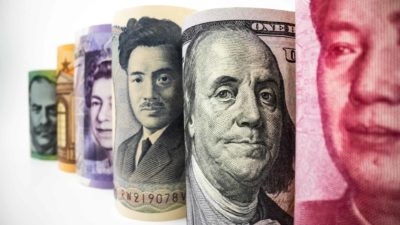In my opinion, every Australian investor should also increase their exposure to the international share market.
It's certainly true that Australia and the ASX has had a strong run over the past 25 years without a recession, although the GFC wasn't exactly fun.
Australia's largest large caps like Commonwealth Bank of Australia (ASX: CBA), Westpac Banking Corp (ASX: WBC), BHP Group Ltd (ASX: BHP) and Wesfarmers Ltd (ASX: WES) have grown nicely over the past three decades. But, in my opinion, I think their growth rates will be lower from here.
The materials boom is unlikely to happen again to the same extent in China with growth shifting towards a services economy. The value of Australia's housing is not likely to boom as strongly again this generation and immigration growth (as a percentage) is likely to slow.
I think the best way for Australian businesses to grow for the long-term is to expand overseas. It's very risky for Australian businesses to go overseas, as Wesfarmers and National Australia Bank Ltd (ASX: NAB) have shown.
But, there are also some great success stories such as CSL Limited (ASX: CSL), Computershare Limited (ASX: CPU), Altium Limited (ASX: ALU), Webjet Limited (ASX: WEB) and Breville Group Ltd (ASX: BRG). But the number of successful ones is a small group.
With most Australian businesses missing out on global earnings, the ASX index as a whole is also too Australia-centric in my opinion. I think BetaShares Australia 200 ETF (ASX: A200) isn't a bad option, but I think the other 98% of the global share market is worth exploring too.
I believe every Aussie's portfolio needs a good percentage of the portfolio allocated to global shares.
Whether you do that through quality fund managers like Magellan Global Trust (ASX: MGG) and WAM Global Limited (ASX: WGB) or exchange-traded funds (ETFs) like Vanguard MSCI Index International Shares ETF (ASX: VGS) and iShares S&P 500 ETF (ASX: IVV), I think there are a lot of opportunities you could be missing out on by just sticking to individual ASX companies.






